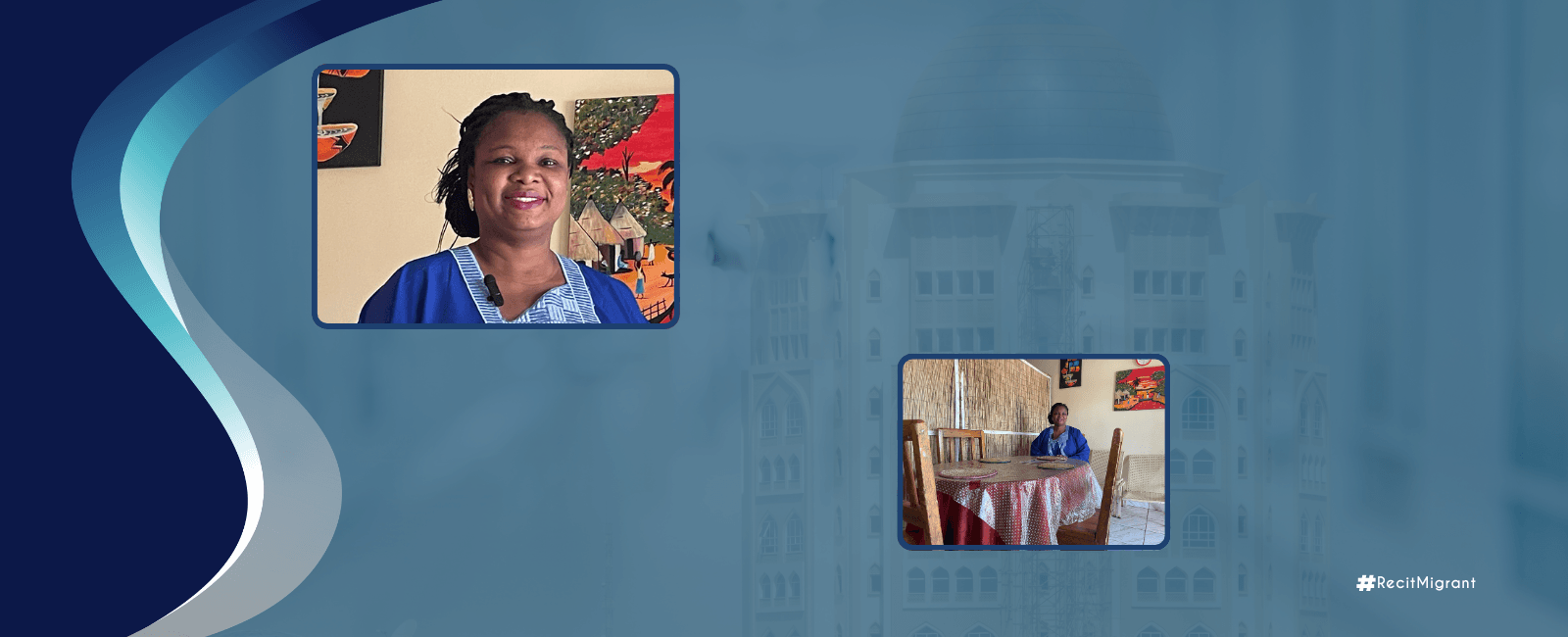

Mélanie is a Niamey-based caterer who skillfully blends family heritage with a measured entrepreneurial spirit. Growing up in the Poudrière district, she learned the traditional art of Dokounou* from her mother. Daughter of a war veteran, Mélanie has combined academic studies, internships and early business ventures to forge a truly authentic career path. In the ever-evolving city of Niamey, she promotes traditional cuisine by engaging with online marketplaces and participating in local fairs. Her carefully prepared dishes reflect the richness of a culinary heritage passed down through generations. The emblematic ‘Dokounou’ dish, in particular, embodies both a deep cultural connection and a quiet revival within the catering industry. Confronted with the challenges of a competitive job market, Mélanie has chosen to turn each obstacle into a professional opportunity. Her determination and expertise are helping to revitalise the local restaurant scene.
When tradition and ambition meet
“I’m passionate about cooking, a passion I inherited from my mother, who taught me the traditional culinary arts of her village.”
Born in 1985 in the Poudrière district of Niamey, later known as Wadata, Houianio Épiphanie Mélanie is a mother of one and a caterer with big ambitions. Her parents originated from Dahomey, now Benin. Mélanie’s father, a French army veteran who served in Algeria, chose to remain in Niger after the country gained independence, eventually becoming a Nigerien citizen. Following his early retirement from military service, he worked as an accountant for a company in Niamey. Mélanie’s parents, who are cousins, both come from the same village in southern Benin.
From an early age, Mélanie was guided by a strong sense of ambition. This drive carried her through primary school and led to her earning a baccalaureate from Mariama College in Niamey in 2004. The following year, she left Niamey for Togo to pursue a degree in International Trade. In 2009, she returned home and began a series of internships in a local government department. It was during this time that she discovered her true calling in the world of catering.
“I have a passion for cooking, which I inherited from my mother. She taught me the traditional culinary arts of her village”, Mélanie told Dialogue Migration. “One of the dishes she passed down to me is Dokonou, which is very popular. When I leave for training courses, I prepare my Dokonou in advance and eat it for breakfast. When I get to work, I share it with my colleagues, who always say, ‘Why don’t you prepare it for us, we’ll pay you?’ At first, I hesitated, but then I thought, ‘Why not?’ It might help me settle a few bills. That’s when I started selling food.”
“Apart from your studies, what are you best at in life?”
As time went by and her internship came to an end, Mélanie struggled to find stable employment. Unwilling to remain idle, she decided to fully commit to selling her culinary creations online and at fairs in Niamey, the capital. “I asked myself, ‘Apart from my studies, what do I do best in life?’ That’s when I began selling my dishes online,” she explained. “I also started participating in fairs, catering for both exhibitors and visitors. I’ve gained many online customers, and business has been going well.” But just as things were picking up, a suggestion from an old acquaintance changed the course of her journey. “One of my former classmates and childhood friends encouraged me to start my own business and open a restaurant. It was partly thanks to her advice that the idea took shape and eventually, my restaurant became a reality,” Mélanie said.
Realising a childhood dream in her home environment was a real struggle
After her former classmate helped her obtain the necessary permits to open a restaurant, Mélanie encountered another major issue that people face in every big city: finding the right location. “Finding a place in Niamey isn’t easy, especially since I wanted it to be in the neighbourhood where I grew up, near my old school, Collège Mariama,” Mélanie told Dialogue Migration. In order to achieve this, the young caterer spent quality time scouting for available spaces near her old school, even if they are not on the main thoroughfare. In a cheerful tone, Mélanie explains that she has finally obtained her business premises: “After months of waiting, my determination has paid off. I’ve got my own place opposite my old school on the main road, and it opened in 2024.” Like many new ventures, Mélanie’s business began modestly. But over time, her clientele steadily grew. “My old and new customers now come to enjoy breakfast, lunch or dinner with me,” she said, a smile in her voice. “Others prefer to order online, a service I’ve maintained and improved,” Mélanie explained.
Today, Mélanie employs four people, including two full-time staff. She also collaborates with delivery services across the city of Niamey. The menu at her restaurant consists mainly of African dishes, led by what she fondly calls “the star of the menu Dokounou. In addition to traditional African recipes, Mélanie’s restaurant also offers pastries for breakfast.
Mélanie’s story is one of passion and entrepreneurial daring in the heart of bustling Niamey. It is the journey of a woman who, inspired by her mother’s rich culinary traditions, has overcome numerous challenges to forge her own identity.
From selling her homemade seasonings online in the early mornings to setting up shop at the lively fairs of the capital, she has affirmed her love for cooking and her deep commitment to her cultural roots every step of the way. Faced with the uncertainties of the job market, Mélanie has transformed each obstacle into an opportunity, turning a childhood passion into a thriving local business. Her restaurant is more than just a place to enjoy dishes like Dokounou; it represents a delicate fusion of tradition and modernity, symbolising the dawn of a new era in Nigerien gastronomy.
This intimate yet universal journey, reminds us that a nation’s culinary heritage is not merely a reflection of the past; it is a living, evolving expression of identity. Mélanie’s success is a testament to the power of believing in one’s dreams and re-imagining daily life, helping to redefine the boundaries of bold, homegrown entrepreneurship.
Dokonou: a prepared dish made from fermented maize flour or sometimes manioc, wrapped in leaves (often banana or maize leaves) and steamed.
Recently Published
Subscribe to our newsletter!
Quick Links


